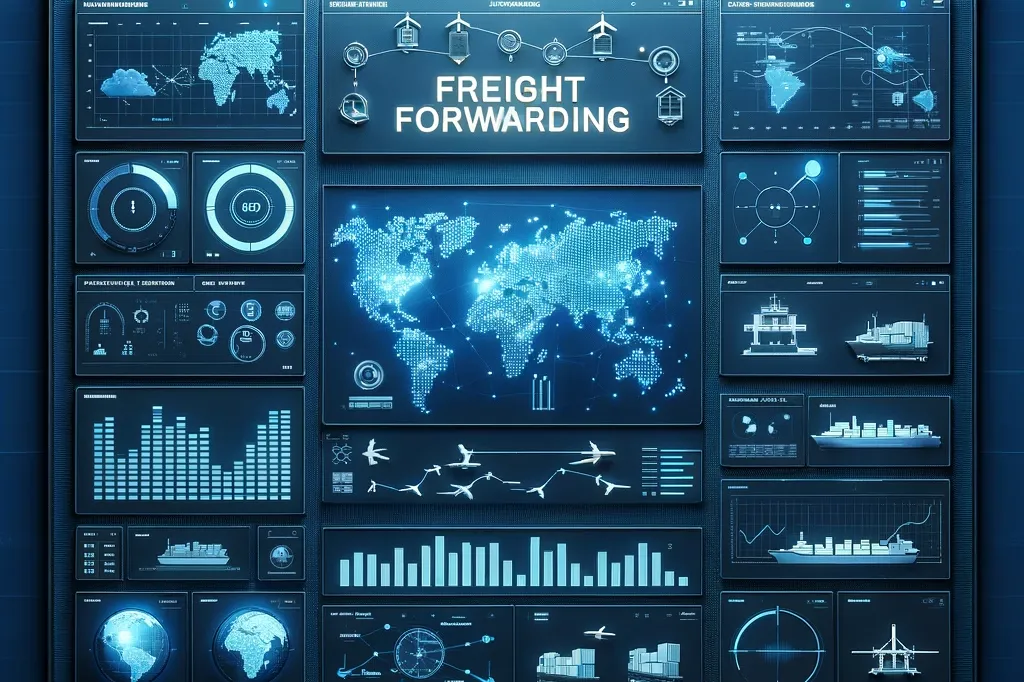Published
1 month agoon
By
admin
In today’s interconnected world, mastering logistics plays a crucial role in the success of businesses. To thrive, organizations must navigate the complexities of global shipping and freight forwarding. Whether you are just starting or looking to refine your skills, this guide provides essential strategies for enhancing your logistics operations.
Global shipping involves the transport of goods across international borders. It encompasses various modes of transportation, including air, sea, and land. The logistics of global shipping require a keen understanding of regulations, tariffs, and routes. Moreover, efficiency in this domain can significantly reduce costs and improve delivery times.
Effective logistics can lead to increased customer satisfaction, enhanced brand loyalty, and ultimately, higher profits. According to research, companies with well-optimized logistics frameworks consistently outperform their competitors.
Organizations face various challenges in global shipping, including:
Addressing these issues requires strategic thinking and proactive planning.
Freight forwarding is a critical component of logistics management. Forwarders manage the transport of goods on behalf of shippers, facilitating the movement from the point of origin to the final destination.
Freight forwarders undertake numerous tasks, including:
Selecting a reliable freight forwarder is essential for ensuring smooth operations. Look for the following traits:
Implementing effective logistics strategies can make all the difference in your global shipping operations. Here are some proven approaches:
By analyzing various shipping routes, businesses can find the most efficient paths for transporting goods. Tools like routing software can assist in identifying faster and more cost-effective options.
Utilizing cutting-edge technology can drastically improve operational efficiency. Consider integrating:
Effective communication with all stakeholders, including suppliers, carriers, and customers, is vital. Regular updates and clear instructions can prevent confusion and delays.
Moving beyond the basics, advanced logistics techniques enable businesses to achieve greater efficiency and competitiveness. Here are some techniques to consider:
Collaborative logistics involves working with other businesses to share resources, such as transportation and warehousing. This approach reduces costs and enhances service levels.
Harnessing data analytics allows organizations to gain insights into their operations. They can identify trends and make data-driven decisions, improving efficiency and effectiveness.
The Lean logistics approach focuses on minimizing waste while maximizing value. This technique encourages continuous improvement and can significantly streamline operations.
Quality management in global supply chains is essential for maintaining high standards and customer satisfaction. Here are some critical aspects:
Establishing quality control protocols can help identify issues before they impact customers. This includes regular audits, inspections, and monitoring supplier performance.
Building strong relationships with suppliers is vital for quality assurance. Engaging in open communication and collaboration can greatly enhance product quality and delivery reliability.
Adopting a culture of continuous improvement ensures that your logistics processes are always evolving toward higher quality and efficiency. Regularly seek feedback and make adjustments accordingly.
What is global shipping?
Global shipping refers to the movement of goods across international borders using various transportation methods. It includes managing logistics, customs, and delivery.
How does freight forwarding work?
Freight forwarding acts as a bridge between shippers and carriers, managing the entire transportation process to ensure goods reach their destinations smoothly.
What are the challenges of international shipping?
Common challenges include customs regulations, unexpected delays, and rising freight costs. Addressing these requires strategic planning and collaboration.
What is lean logistics?
Lean logistics focuses on minimizing waste while maximizing value in the logistics process, promoting efficiency and continuous improvement.
Mastering logistics involves understanding both the fundamentals and advanced strategies of global shipping and freight forwarding. By investing in the right practices—such as collaboration, technology integration, and quality management—businesses can enhance their operational efficiency significantly. As the logistics landscape continues to evolve, adapting and innovating will be key to sustaining a competitive advantage. Whether you’re an industry veteran or just starting, embracing these strategies will pave the way for success in global shipping.
For more insights and strategies, consider exploring the following resources:
